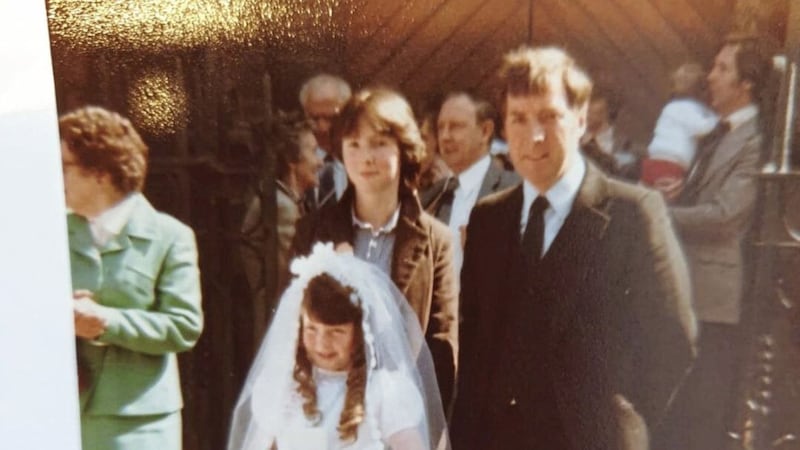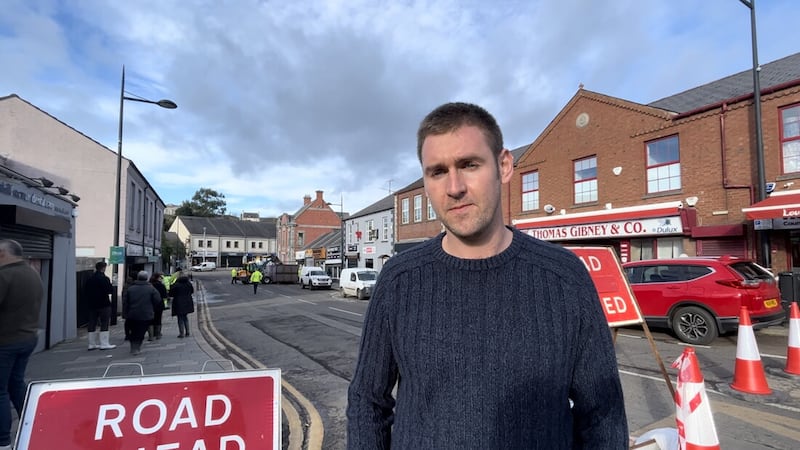ON October 31 1984, Angela Liddy watched her father Harry Muldoon die at the hands of loyalist gunmen who broke into their home in the Mountainview area of north Belfast.
At just 21 years old, Angela's time to grieve that horror was short, as overnight she became the sole guardian of her 11-year-old sister Tracey and the main breadwinner of the now heartbroken little family-of-two.
"My mummy had died in 1978, daddy was raising us alone - we needed him, we doted on him," said Angela.
A black taxi driver, Mr Muldoon was targeted for no other reason that he was Catholic
One of his killers, UVF man Denis McClean, was sentenced to more than 400 years in prison for three murders, six attempted murders and the manslaughter of a policewoman.
He was released after serving just 10 years of his sentence under the terms of the Good Friday Agreement.
Speaking about the night her father was murdered, Angela recalls the door of their home being kicked in.
"At first I thought it was thunder and lightning," she said.
"My daddy lying on the stairs, one was hitting him with the gun.
"I saw the two of them, the gunmen - my daddy shouted 'get the police'.
"They chased him into my bedroom and they shot him dead there.
"Tracey had gone into her bedroom and was sitting in a ball squealing. I can see it all now, so clearly, like slow motion.
"The taller of the two pointed a double barrel shotgun at my head, but I don't want to talk about them, they've taken enough of our lives, they don't deserve any more."
Having been at the scene of the murder, the two sisters will be entitled to apply for the new Troubles pension but do not know how their trauma will be graded.
"After daddy's murder I took three weeks off work. My aunt told me I should go back, you know, get into a routine," Angela said.
"Tracey went back to school after a week, I thought it was the right thing to do, but I never knew if what I was doing was right.
"I didn't know whether I wanted to stay in the house - many a night I thought I can't take this any more.
"I was going to crash the car and end it for us. I didn't know if was I raising her right, she was only 11, she only had me so I thought, I'll take her with me - they were the really dark days."
The two sisters remain closer than ever, bonded by tragedy, but Angela says the process of applying for the pension could push less united families apart.
"Tracey is great, my daddy would be so proud of her. She's an amazing person, my two children idolise her. Someone said to me one day 'He would be proud of you too' - I'd never thought of that.
"For anyone who lost limbs, their pain is very visible. No-one can see my injuries, they're inside.
"How are they going to judge my trauma? I didn't want tablets or medication. I was afraid someone was going to take Tracey from me.
"I went to all her school meetings, doing things a parent should have been doing. I would make sure she was spotless going out in the morning.
"My priority was my sister - don't get me wrong, I'd do it all over again.
"I see what happened to my daddy every night. I still think they're coming after me, I'm afraid to close my eyes, even in the shower.
"How are they going to judge my hurt? They are even judging us as sisters against each other, which is cruel.
"We've already talked about this. No matter what happens we'll split whatever we get so that we're both getting the same.
"But this process isn't fair and it isn't right. Our loss should be enough to prove our trauma."








